SoftBank Group Q2 profit blows past expectations; sells Nvidia stake for $5.8 bln
A month ago the trend in global markets remained bullish despite the fallout from a correction that started mid-summer, based on several sets of ETF pairs. Following yesterday’s upbeat Federal Reserve news, however, the upbeat outlook has strengthened.
The central bank left its policy rate unchanged for a third time while suggesting that a round of rates cuts is on the table for 2024. “While the weather is still cold outside, the Fed has suggested a potential thawing of frozen high interest rates over the next few months,” says Rick Rieder, chief investment officer of global fixed income at BlackRock (NYSE:BLK).
Markets cheered as prices for both US stocks and bonds surged on Wednesday, Dec. 13. In fact, a bullish trend has been visible all along via several ETF pairs that track various facets of global markets.
For a top-down perspective, consider the ratio for an aggressive global portfolio (AOA) vs. its conservative counterpart (AOK). Although the trend wavered due to turbulence in 2023 and this year’s summer/fall correction, the upside bias has persisted, suggesting that a risk-on signal remains intact for global asset allocation strategies.
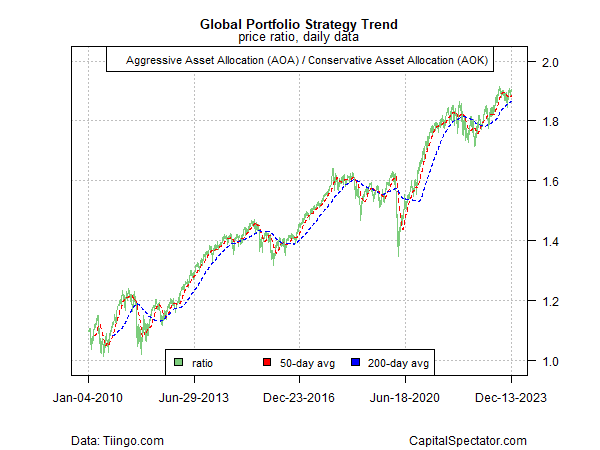
Focusing on US stocks reflects more volatility, but the recent rebound in the ratio of the broad market (SPY) vs. a low-volatility portfolio of equities (USMV) continues to skew positive.
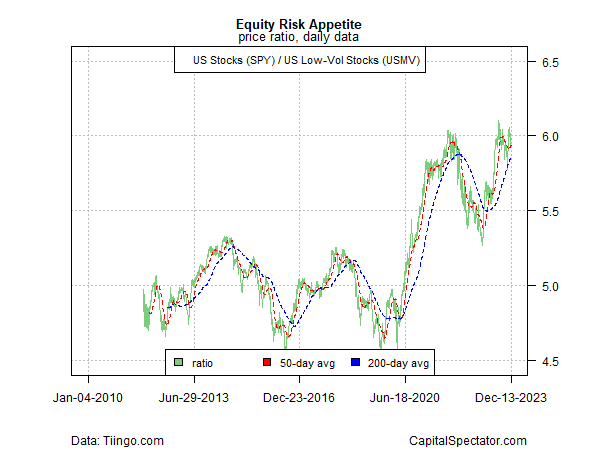
Using the relative performance of semi-conductor stocks (SMH), a business-cycle proxy, vs. US shares overall (SPY) also paints a bullish trend.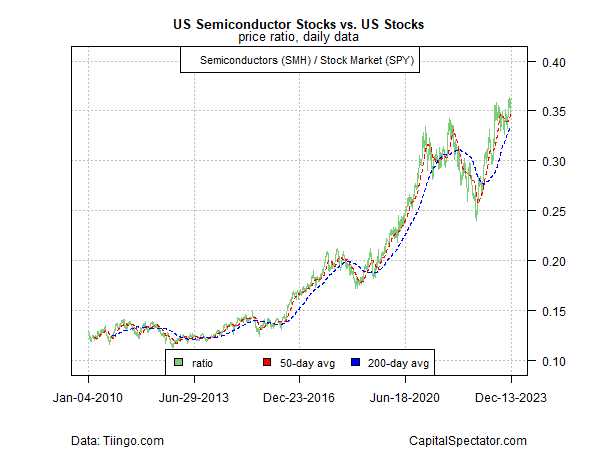
Meanwhile, one of the hardest hit industries in recent history — homebuilders (XHB) — are rebounding relative to the US stock market (SPY). The critical factor: expectations that interest rates will fall suggests relief is coming for home buying and residential construction.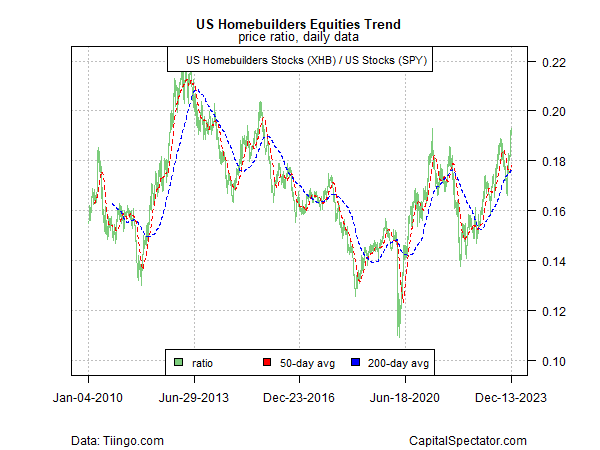
The risk-on party in bonds is still mixed, according to the ratio of medium-term Treasuries (IEF) vs. their short-term counterparts (SHY). But the sharp rebound in recent days suggests that this key market signal is on track to revive after a long run of bearish trending. If this ratio turns decisively positive in the weeks ahead, the shift would mark one of the last market components to go all-in on risk-on.
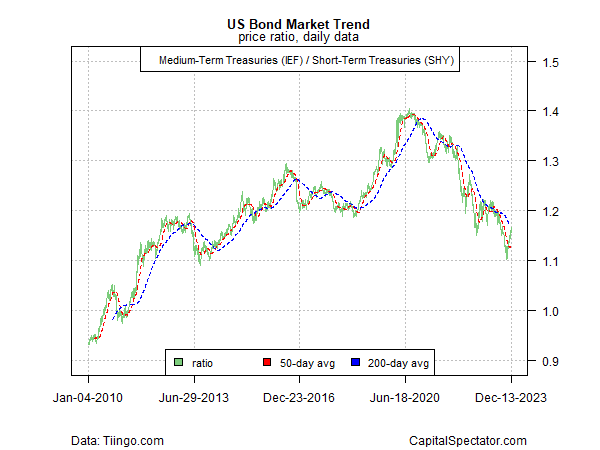
Markets can be wrong, of course, and so the analysis above shouldn’t be confused with an infallible all-clear indicator. On the other hand, betting against the trend isn’t riskless either. What is clear, at least in relative terms, is that market trends are still leaning into a positive bias. As a result, the odds favor a risk-on positioning.
